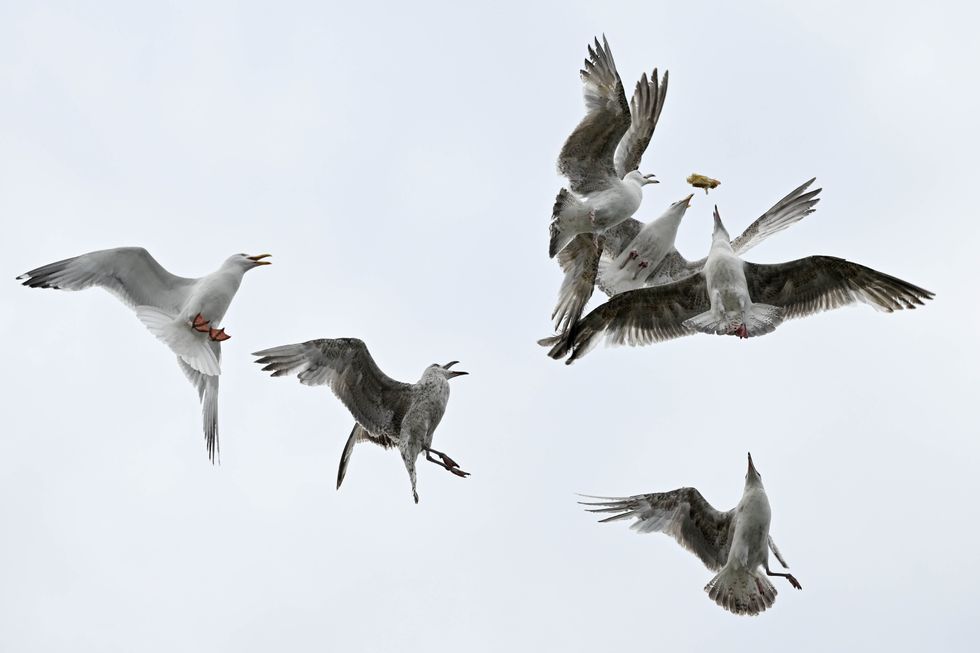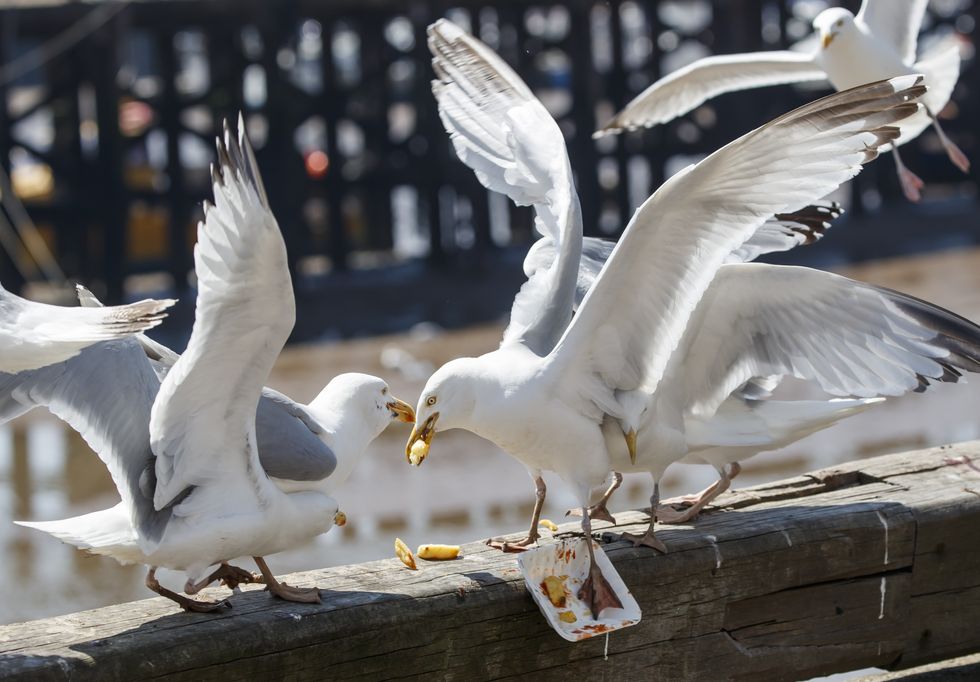Eliana Silver
Guest Reporter
Four Yorkshire coastal towns have launched a £36,000 strategy to tackle aggressive seagulls that have been terrorising visitors and locals.
The new council initiative aims to protect tourists from attacks in Scarborough, Whitby, Filey and Bridlington, where the protected birds have become an increasing problem for both visitors and traders.
Some businesses have even resorted to installing barbed wire to deter the boisterous birds, which are known for stealing food and aggressive behaviour.
Conservative councillor Keane Duncan revealed there have been "more than 60 reports of gull mugging attacks of people and pets over the last two years".

"Clearly fried fish, chips, ice cream are not part of a seagull's diet, so we want to make sure we are discouraging interactions between humans and birds," Duncan said.
The picturesque coastal towns attract thousands of visitors annually who come to enjoy the beaches, local attractions and North Sea air.
The new strategy will explore alternative nesting sites along the Yorkshire coast for the avian troublemakers.
The council's plan includes educational initiatives to warn people about the dangers of feeding seagulls.
Signage and awareness campaigns will be implemented across the four towns.
The strategy also aims to discourage visitors and residents from leaving litter and rubbish on beaches, which attracts the protected species.
Dean Richardson, the council's head of regulatory services, noted that ledges and rooftops provide an "ideal" site for nesting spots.
He highlighted a "perceived increase in the urban gull population in our coastal towns" and rising complaints to the council.

Ashton Bunn, who has experience clearing seagull waste, described it as "a constant problem".
"There's nothing you can really do as they have tried to put barbed wire up on the windowsills but it doesn't seem to be working. It needs addressing but we are in a seaside town so you have to accept that this is part of it," Bunn said.
The Yorkshire initiative follows similar strategies already implemented in other parts of the UK.
Both Scotland and Bath and North Somerset have introduced comparable plans to manage their seagull populations.
North Somerset has been running its seagull management programme since 2016.
Find Out More...
The new council initiative aims to protect tourists from attacks in Scarborough, Whitby, Filey and Bridlington, where the protected birds have become an increasing problem for both visitors and traders.
Some businesses have even resorted to installing barbed wire to deter the boisterous birds, which are known for stealing food and aggressive behaviour.
Conservative councillor Keane Duncan revealed there have been "more than 60 reports of gull mugging attacks of people and pets over the last two years".

"Clearly fried fish, chips, ice cream are not part of a seagull's diet, so we want to make sure we are discouraging interactions between humans and birds," Duncan said.
The picturesque coastal towns attract thousands of visitors annually who come to enjoy the beaches, local attractions and North Sea air.
The new strategy will explore alternative nesting sites along the Yorkshire coast for the avian troublemakers.
The council's plan includes educational initiatives to warn people about the dangers of feeding seagulls.
Signage and awareness campaigns will be implemented across the four towns.
The strategy also aims to discourage visitors and residents from leaving litter and rubbish on beaches, which attracts the protected species.
Dean Richardson, the council's head of regulatory services, noted that ledges and rooftops provide an "ideal" site for nesting spots.
He highlighted a "perceived increase in the urban gull population in our coastal towns" and rising complaints to the council.

Ashton Bunn, who has experience clearing seagull waste, described it as "a constant problem".
"There's nothing you can really do as they have tried to put barbed wire up on the windowsills but it doesn't seem to be working. It needs addressing but we are in a seaside town so you have to accept that this is part of it," Bunn said.
The Yorkshire initiative follows similar strategies already implemented in other parts of the UK.
Both Scotland and Bath and North Somerset have introduced comparable plans to manage their seagull populations.
North Somerset has been running its seagull management programme since 2016.
Find Out More...
